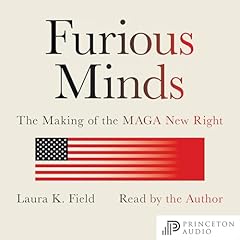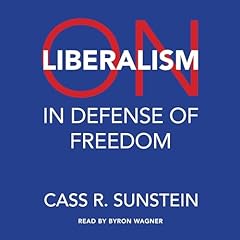
A World After Liberalism
Philosophers of the Radical Right
No se pudo agregar al carrito
Add to Cart failed.
Error al Agregar a Lista de Deseos.
Error al eliminar de la lista de deseos.
Error al añadir a tu biblioteca
Error al seguir el podcast
Error al dejar de seguir el podcast
 Exclusivo para miembros Prime: ¿Nuevo en Audible? Obtén 2 audiolibros gratis con tu prueba.
Exclusivo para miembros Prime: ¿Nuevo en Audible? Obtén 2 audiolibros gratis con tu prueba.Compra ahora por $15.90
-
Narrado por:
-
Jeff Harding
-
De:
-
Matthew Rose
A bracing account of liberalism's most radical critics, introducing one of the most controversial movements of the 20th century.
In this eye-opening book, Matthew Rose introduces us to one of the most controversial intellectual movements of the 20th century, the "radical right", and discusses its adherents' different attempts to imagine political societies after the death or decline of liberalism. Questioning democracy's most basic norms and practices, these critics rejected ideas about human equality, minority rights, religious toleration, and cultural pluralism not out of implicit biases, but out of explicit principle. They disagree profoundly on race, religion, economics, and political strategy, but they all agree that a postliberal political life will soon be possible.
Focusing on the work of Oswald Spengler, Julius Evola, Francis Parker Yockey, Alain de Benoist, and Samuel Francis, Rose shows how such thinkers are animated by religious aspirations and anxieties that are ultimately in tension with Christian teachings and the secular values those teachings birthed in modernity.
©2021 Matthew Rose (P)2021 Yale Press AudioLos oyentes también disfrutaron:




















Las personas que vieron esto también vieron:


















Extraordinary
Se ha producido un error. Vuelve a intentarlo dentro de unos minutos.
This book is a necessity for those who seek to understand the furthest fringes of right wing ideology, as the present progressive orthodoxy is woefully unequipped to do so. The self-declared victory of liberalism was perhaps premature, and Mr. Rose demonstrates why this deserves your attention.
Ignore at your own risk
Se ha producido un error. Vuelve a intentarlo dentro de unos minutos.
Fascinating Peek into Alien Philosophy
Se ha producido un error. Vuelve a intentarlo dentro de unos minutos.
Great book Matthew Rose!
An intellectually honest peek into the Far Right
Se ha producido un error. Vuelve a intentarlo dentro de unos minutos.
Regardless of where you happen to be on the political spectrum, this book will increase your understanding and broaden your perspective.
Essential Reading for understanding the Far Right
Se ha producido un error. Vuelve a intentarlo dentro de unos minutos.


